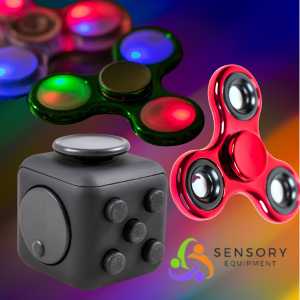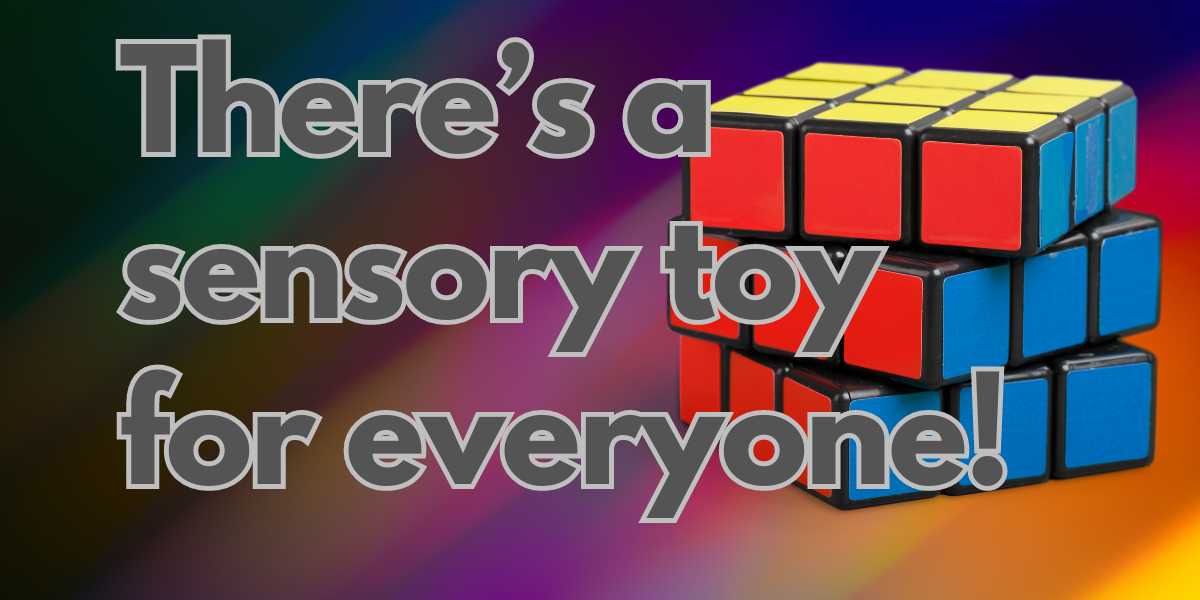The Therapeutic Benefits of Sensory Toys for Adults with Complex Needs
Sensory toys have long been associated with childhood play and development. However, these versatile tools are not limited to children alone. In recent years, there has been a growing recognition of the benefits of sensory toys for adults with complex needs. These individuals may face a range of challenges, including developmental disabilities, autism, sensory processing disorders, and various mental health conditions. This article explores the myriad advantages of sensory toys for adults with complex needs, underscores the importance of individual choice in selecting the right toy, and emphasises that not all toys are suitable for every adult.
The Power of Sensory Stimulation
Sensory toys are designed to engage the senses, including touch, sight, sound, and even smell, in a controlled and enjoyable manner. For adults with complex needs, these toys can provide an array of therapeutic benefits:
- Stress Reduction: Sensory toys can help individuals relax and reduce stress. Activities such as squeezing stress balls, feeling textured surfaces, or watching calming kinetic sand can provide a soothing effect, aiding in emotional regulation.
- Sensory Integration: Many adults with complex needs struggle with sensory processing. Sensory toys can assist in integrating sensory information, helping individuals better understand and respond to their environment.
- Communication and Expression: For those who have difficulty communicating verbally, sensory toys can serve as a means of non-verbal expression. The act of engaging with these toys can convey feelings, preferences, and desires.
- Improved Focus and Attention: Sensory toys can enhance concentration and focus, which can be especially beneficial for individuals with attention deficit disorders or autism spectrum disorders.
- Motor Skills Development: Certain sensory toys require fine and gross motor skills, helping to improve coordination and dexterity.
Examples of Sensory Toys for Adults
- Fidget Spinners: These handheld devices provide tactile stimulation and can assist in calming anxiety or restlessness.
- Weighted Blankets: Designed to provide deep pressure, these blankets offer a comforting and calming sensation.
- Sensory Balls: Textured and squishy balls can be squeezed, rolled, or bounced, promoting tactile exploration and motor skill development.
- Fibre Optic Lights: These visually stimulating toys provide a mesmerising light show that can captivate and soothe.
- Aromatherapy Diffusers: Combining visual and olfactory stimulation, diffusers release calming scents, creating a relaxing atmosphere.

Top pick
Editor’s choice
Great value
The Importance of Individual Choice
While the benefits of sensory toys are vast, it is crucial to recognise that not every toy will suit every adult with complex needs. Individuals vary greatly in their sensory preferences, sensitivities, and comfort levels. What may be a soothing activity for one person may be overstimulating or uninteresting for another. Thus, it is essential to prioritise individual choice when introducing sensory toys.
Consider the following when selecting sensory toys for adults with complex needs:
- Sensory Profiles: Assess an individual’s sensory preferences, sensitivities, and triggers. Some may prefer tactile stimulation, while others may find comfort in visual or auditory experiences.
- Trial and Error: Encourage individuals to experiment with different toys to determine what works best for them. Be open to trying various options until the right fit is found.
- Personal Interests: Incorporate an individual’s hobbies and interests into sensory activities. For example, a nature enthusiast might enjoy exploring sensory gardens or tactile materials inspired by the outdoors.
- Safety First: Ensure that selected toys are safe and age-appropriate for the individual. Be cautious of small parts that could pose choking hazards.
Conclusion
Sensory toys have emerged as valuable tools for enhancing the lives of adults with complex needs. They offer a wide range of therapeutic benefits, from stress reduction to improved sensory integration and communication. However, it is essential to recognise that not all sensory toys are suitable for every individual. Tailoring choices to an individual’s preferences and sensitivities is key to maximising the positive impact of sensory play. By prioritising individual choice, we can empower adults with complex needs to find joy, comfort, and self-expression through sensory toys, ultimately enhancing their quality of life.







